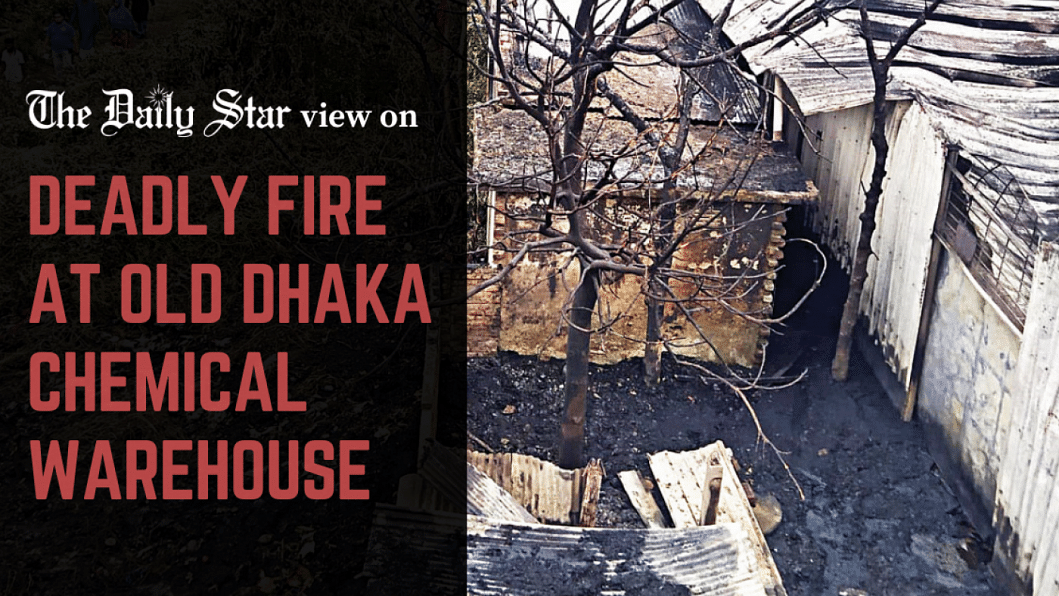Have we grown apathetic to deaths?

In yet another incident of chemical explosion, five members of a family – including two children – were burnt to death, joining a long line of victims of similar "incidents" in Old Dhaka. In the early hours of Tuesday, fire broke out at a chemical warehouse in Keraniganj, and quickly spread to nearby residential houses. Reportedly, the explosion was so massive that the heat of it was felt as far as 300 yards away, injuring people and burning trees.
Here is why this event sparks as much outrage as it evokes grief: Our report reveals that a trader illegally set up two chemical warehouses in the residential area of Gadarbagh in Keraniganj following the devastating Churihatta fire in February 2019. That fire, it may be recalled, was also caused by an explosion in a chemical warehouse and went on to kill 71 people. Responsible officials apparently had no idea about the existence of the new warehouses. The question is: How could such dangerous establishments in a residential area have escaped their notice? If the administration had paid proper attention, innocent people would not have lost their lives.
The negligence goes even deeper. After the catastrophic Nimtoli fire in 2010 that claimed more than 120 lives – also caused by an explosion in a chemical warehouse set up in a residential building – the government undertook an initiative to move chemical industries to safe, specialised locations, far away from residential establishments. Thirteen years later, there is no notable progress in this regard. The construction of the Bangladesh Small and Cottage Industries Corporation Chemical Industrial Park in Sirajdikhan, Munshiganj, where the chemical warehouses were supposed to relocate, is nowhere near completion. The project, drafted in 2011 and revised later, was scheduled to be complete by June 2022, but the pandemic slowed down its progress, according to the project director.
What we cannot comprehend is why the deadline of a project conceived in 2011 was set 11 years later. Given the frequency of fires by chemical explosion in Dhaka and elsewhere, why was it not made a priority project? Seeing the lackadaisical pace at which the initiative is moving, we cannot help but assume apathy on the relevant authorities' part. Nothing else explains why, after a series of horrible chemical explosions that caused so many deaths, there is no proper mechanism to monitor the handling and storage of hazardous items. This heinous pattern of negligence and apathy cannot be allowed any longer.
We urge government offices responsible for monitoring and supervising hazardous industries to ensure that no one can get away with illegal handling and storage of dangerous chemical materials, even more so around residential areas. And they should expedite the completion of the chemical industrial park so that all warehouses can be relocated as soon as possible. We cannot help those whom we have already lost to explosions. But let us not fail those who are still with us.


 For all latest news, follow The Daily Star's Google News channel.
For all latest news, follow The Daily Star's Google News channel. 









Comments